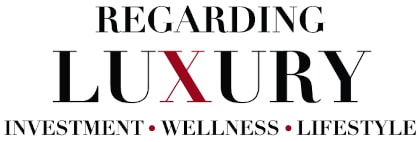Unsecured loans offer many advantages over secured financing. First of all, unprotected lending enables you to access funds you require without placing collateral as security for them – however, there’s a lot more you should know.
Unsecured loans: Application process
No matter the purpose of your loan request – debt consolidation or emergency cash advance – there are numerous lenders offering personal loans. Unsecured personal loans differ from secured loans by not requiring collateral like your car or house as security; instead they’re granted on the basis of credit history and ability to repay.
Banks, credit unions and online lenders all offer these unsecured loans at various fixed interest rates repaid monthly in installments with pre-approval being an effective way of understanding terms and costs associated with them before you commit. Before offering an unsecured personal loan (https://billigsteforbrukslån.com/beste-forbrukslån/) lenders typically conduct an assessment of your credit profile, income and debt-to-income ratio. It’s important you know your scores beforehand so you’re ready for any results.
This involves checking both your Experian credit report and FICO(r) score; the lower your score is, the less likely it is that you qualify. Some lenders only approve borrowers with excellent credit (FICO score of 670 or above); others may reserve lower rates for good to great borrowers with good to great scores; additionally your income level plays a vital role as it may help secure larger amounts and better terms.
An easy and fast way to estimate how much money you could borrow with online calculators available from most lender websites is using different calculators, which will show your potential monthly payment amounts and which lenders to consider. Borrowers use personal loans for various reasons including consolidating debt or paying off existing high-interest credit cards – LendingTree’s research has demonstrated this preference over using them for purchases such as home improvement projects or vacations.
To apply for an unsecured personal loan, you’ll need to provide information such as your address, phone number and employment status. Some lenders may also request proof of income such as pay stubs, bank account statements or other forms of identification. Once approved, funds could arrive in as little as the next business day!
Before selecting an unsecured personal loan lender, it’s advisable to compare their rates, fees and terms. Online lenders, banks and credit unions typically offer these loans; peer-to-peer lending platforms and private investors also offer these loans with good credit terms.
An unsecured personal loan should only be considered as a last resort. Failure to repay on time could damage your credit rating and lead to serious consequences like garnishing of wages or tax refunds, among other issues.
Before opting for such a loan, alternative solutions such as debt repayment plans or short-term credit cards should be explored first – these might help ensure debt payments on time while protecting assets at risk from being put at risk. If you’re having difficulty meeting repayment obligations it might also be worthwhile consulting a credit counselor about budgeting or financial counseling strategies
No collateral required
Personal loans with no collateral requirements offer many advantages over their secured counterparts, since lenders have the right to seize any assets used as security if you fail to pay. Therefore, it’s advisable to compare rates, terms and fees from various lenders when searching for an unsecured loan option.
However, borrowing still constitutes debt and you should make sure you can repay what you owe. Lenders take into account your credit score, history and income level when reviewing an unsecured loan application; additionally they may review savings, employment data and any other pertinent financial data.
Typically, an unsecured loan can be applied for through banks, credit unions and online lenders; however, private lenders and peer-to-peer lending platforms also offer these personal loans. Before committing to one lender, use an online prequalification tool to explore your rates and terms before you commit.
To qualify for an unsecured personal loan, you should possess both good to excellent credit scores and income streams. Lenders want assurances that you will be able to repay their loan without defaulting. Substantial savings should also be available so as to cover unexpected expenses should they arise.
Some lenders may provide larger personal unsecured loan amounts to individuals with higher than average income levels, since they understand these borrowers are less likely to default. Lenders usually reserve their most attractive interest rates for those with excellent credit histories and higher income levels.
Unsecured loans: Lower interest rates
Unsecured personal loans differ from secured loans like mortgages and car loans in that they’re secured only by creditworthiness; as a result, lenders consider these more risky and may impose higher interest rates and stricter qualifying criteria than secured options.
At banks, credit unions, and online lending companies you can obtain unsecured personal loans at competitive rates with quick funding times and short application processing times. When borrowing the money through these unsecured personal loans you can use it for high interest credit card debt payments, home improvements projects, vacation expenses or whatever your heart desires!
Unsecured personal loans do not rely on collateral, limiting your borrowing limit as much as secured loans would do. Lenders will assess your credit score, debt-to-income ratio and other factors when considering whether to grant you one; those with excellent credit profiles have greater chances of receiving one than others.
Your lender takes into account all of your other debt obligations when determining how much to lend. They want to ensure you can manage all payments and debts without straining your finances. If you take out an unsecured personal loan and fail to repay it on time, they could take legal action against you to recover its funds – potentially damaging your credit score as well as sending collection agencies notice of collection proceedings against you.
Some lenders charge factor rates, which don’t incorporate additional loan fees like those seen with other loans. Although it may appear more cost-effective, you should still compare it against your typical interest rate to ensure you are paying what’s fair.
Before choosing an unsecured loan, it’s essential to carefully consider its impact on your unique circumstances. While personal loans may be suitable in certain instances, others might benefit more from loan types offering greater flexibility or lower rates – for instance homeowners may use secured loans to finance major home improvements; or perhaps taking out a credit card with 0% intro offer could provide them with an opportunity to build credit while saving on monthly interest charges.
Easy to access to funds
An unsecured personal loan makes acquiring money much simpler. Approval usually happens quickly by filling out and uploading documents online, then the lender deposits money directly into your bank account usually the same day. Personal loans can be useful in various circumstances including debt consolidation and home improvement projects as well as paying off high-interest credit card debt which could save significant interest charges each month.
Secured loans tend to be granted to borrowers who can provide some type of collateral, like their car or house as security; however, unsecured loans may be the better choice if there is nothing you wish to put at risk.
Even though unsecured typically come in smaller amounts than secured ones, they can still prove valuable to your finances. They allow you to consolidate debt and pay off high-interest credit cards that could otherwise affect your score – they may even help begin rebuilding it!
Unsecured loans have the potential to quickly put you into debt, which can have adverse repercussions for both you and your credit score. Therefore, you need to ensure you take time and plan accordingly for each monthly payment plan.
Even though an unsecured loan doesn’t put any of your assets at risk, it is still wise to remember that should you not fulfill its terms and conditions, lenders have recourse to legal action against you if necessary. Some creditors might repossess or sell assets; other measures might involve reporting negative information to credit bureaus or sending your debt directly for collection.
Although there may be many advantages of choosing unsecured loans, you must remember they carry high risks for both lenders and borrowers alike. If payments go unmade, more money than anticipated could be owed than initially borrowed.
Shorter process
Unsecured personal loans differ from secured loans in that they don’t require offering up assets as collateral; rather, their eligibility and interest rate depend on your creditworthiness and income instead. Therefore, lenders typically offer shorter applications and quicker turnaround times.
Apply for an unsecured loan through banks, credit unions and peer-to-peer lending sites; however, Upgrade is a personal loan marketplace where you can prequalify with multiple providers without needing to perform hard credit pulls – this makes comparing rates and terms from various lenders much easier and can help find you financing solution more quickly!
Once you’ve located a lender, filling out an online application will only take minutes and once approved funds will usually arrive at your bank account in as little as one or two business days. Some lenders even offer chat features so that you can interact directly with an underwriter or discuss any financial concerns directly.
Even though unsecured personal loans don’t need to be secured with assets, lenders still reserve the right to take action if you fail to make payments on time if your unsecured loan defaults – which could include sending it directly to collection or taking legal action against you. Defaulting will cause your credit score to decrease and could prevent you from qualifying for future financing opportunities.
Though repossessing assets may be uncommon, lenders can still repossess them if borrowers become unable to make payments on time. Should this occur, your creditors will notify the credit bureaus and your credit score could decrease significantly; your unpaid debt may even be sold to a collection agency and fees will still apply – therefore it is always wise to carefully consider all available loans before applying for one unsecured loan.
Top photo by Travis Essinger on Unsplash

I am a 50-something Torontonian who loves everything about my city. It’s been my home, my playground, for my entire life. I went to school here. I met my wife here. I own real estate here. I love writing about the transformation of my city on the world stage, which hasn’t been anything short of dramatic. That continues on, as I write this. I write on the real estate scene. I write on travel and fashion. I like following the world of luxury watches.
But I love writing about cars – check that, luxury cars, a level of superior, engineering sophistication, high performance and style, that transports you not just from one destination to another but also out of whatever you are going through on a particular day, whatever mood you are in, all to another head space. It’s complete and total exhilaration, head to toe.
Check out my stories, and email me direct at mkeast@regardingluxury.com








